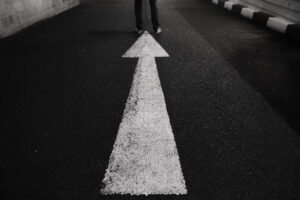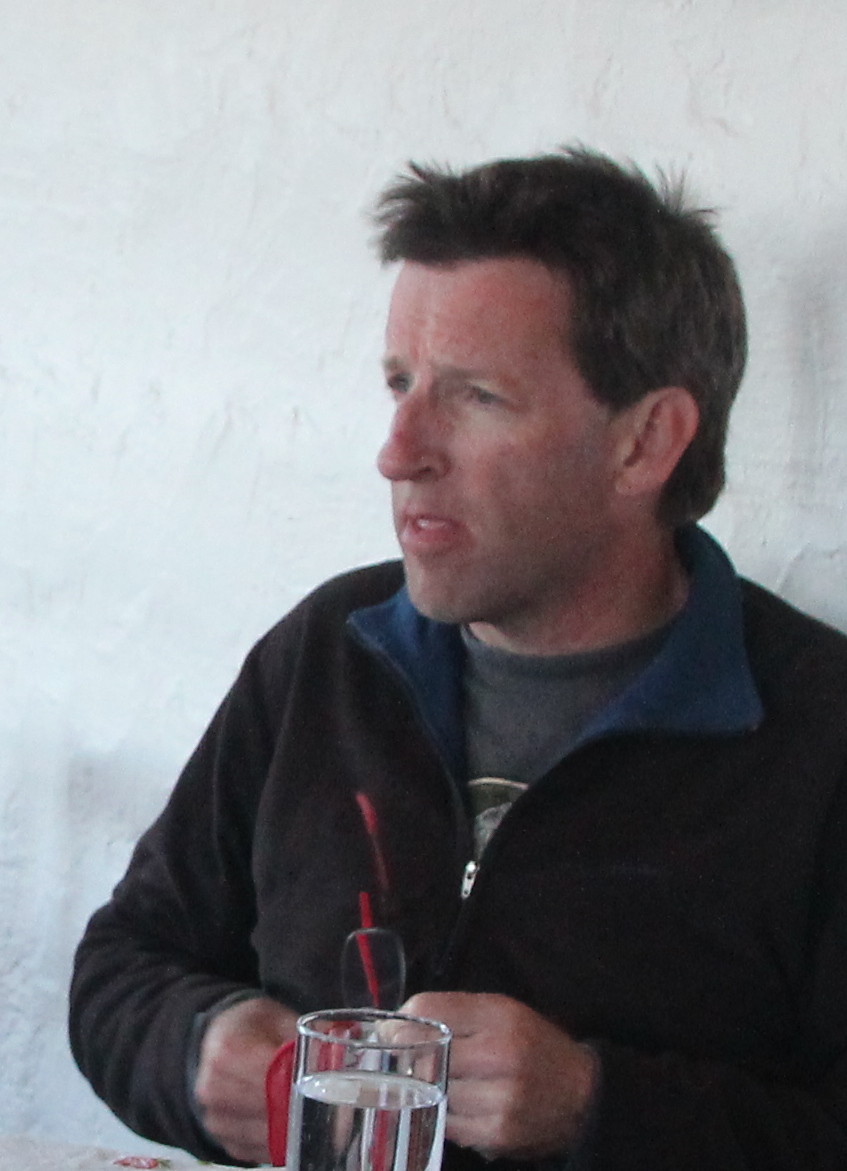By the time I got to The Drive, I’d gotten damn used to small-d driving: all those errands through suburban mall-land, returning home late through the mercury-vapor streets after nights out with friends in some Chicago neighborhood or other, the longer expeditions that took varied combinations of friends, often overnight, to visit someone at a college in some other Midwestern state—truck stop, rotgut coffee, pop another cassette mixtape into the player, return to the clean loneliness of the white dashed lines and the solitary bright lights that seemed to dot every one of the otherwise unseen farms that lay out there, adrift and lonely in the dark. And a couple of times I’d already taken the seemingly long drive to the East Coast, that to-me alien land of wooded hills, tightly winding creek valleys, big boxy colonial houses and crossroads towns that in their shabbiness or grace suggested hierarchies of class and possibility that remained mysterious to me.
But I had not driven West, at least not by myself, and certainly not with any intention of never coming East again. To this day I don’t know quite what my parents thought of my plan. I was driving to Arizona, alone, to take a dubiously paid temporary job in pretty much the middle of nowhere—and a middle of nowhere, to boot, that I could not even name yet, because it would not be until I showed up at the Game and Fish Department office in Phoenix that I would find out to which desert bald eagle nesting site I’d be assigned with some rank stranger, a location where I’d spend the next three or four months, living largely unshowered under the desert sky. And after spring in the desert, I told them, maybe I’d continue on to Seattle, which had already lured away a number of my friends from the Midwest,
The lure of open land was not something my dad recognized from his own quite urban life, but his own background as an immigrant surely gave him some sense of the need young people can feel to make their own way in a literal geographic sense. My mom—I’m still not sure what she thought as her son drove off from the Chicago suburbs in a still-newish Ford Ranger, the shiny metallic cap on the back tucked full with camping gear, a new cooler, and probably more field guides than were strictly necessary.
I spent a short night sleeping in the back of the truck in a state park in Oklahoma, but my first long stop was to be in Santa Fe, where I was meeting a friend from grad school. The Drive there was doubtless, clean, immaculate. I felt a rising sense of freedom at every mile through the table farms of Illinois, the hills of Missouri, undulating plains of Oklahoma, then the mesas starting to rise in Texas and in New Mexico, finally that big openness, the sere grasses and the browned chollas, the mesquite and juniper. It was late January. On an AM station that came through strong on the plains some guy named Rush Limbaugh was ranting about the new Clinton administration’s plan to allow gays in the military. I found this ridiculous but felt unwilling to let the discord ruin my day, as the very landscape that allowed for clear reception engendered exactly the sense of freedom I had been craving.
I was glad though to have a friend at the end of the trail. If in Arizona I knew no one yet, in Santa Fe I felt embraced. Danielle had cool friends: John an ornithologist/ski bum, Nancy an environmental educator. No one in her circle, of course, was actually from there, and I wondered how long one could keep up the ski-bum life, going from one temp job to another. I was about to turn 30. “I don’t even want to think about that,” I wrote in my journal.
A few days later I’d made it to Arizona, finally halting to camp at Lost Dutchman State Park after a long day’s drive all the way from the Rio Grande Valley. It was green and lush and smelled of spring. The Southwest was experiencing an El Nino winter, one of the heaviest in years. Rivers overflowed; bridges toppled. In western Arizona, rivers normally a few inches deep turned into torrents. And that’s where I ended up in time for my birthday—my furthest West, the place I’d stay for a few months, and from which I then began looking around Arizona to figure out what came next. My camp partner even managed to bake a chocolate cake for me over a camp stove. Around us, the Sonoran Desert was beginning to pop off one of the biggest spring wildflower shows in decades. It was a good spring to be in Arizona. If it had been a dry, desolate one, maybe I wouldn’t have stayed, in which case I certainly wouldn’t be writing this account.
It’s funny how calendars work. Though the numbers tell me that The Drive took place exactly half a lifetime ago, in many ways it doesn’t seem that distant, even if I did long ago give up the outdoor-temp-job lifestyle. The same truck is still parked in my driveway. I am still prone to dropping everything and hiking up a desert mountain, or into a canyon, at a moment’s notice. Even figuring for the effects of perspective, the first 30 years of my life seem a lot longer, and a lot more expansive in how much I grew, than the next 30. Maybe that’s an inevitable characteristic of the way we age: what seemed endless when we were kids—like a summer vacation—comes to seem constricted later on.
Maybe so. And maybe there’s this change too. Thirty years ago, I was appalled to realize that I would soon turn 30. Now the birthday stakes have gotten even bigger, I’d say, with a bigger milestone looming all too soon. Do I want to think about it? Not really. But then again, I guess I just have.


